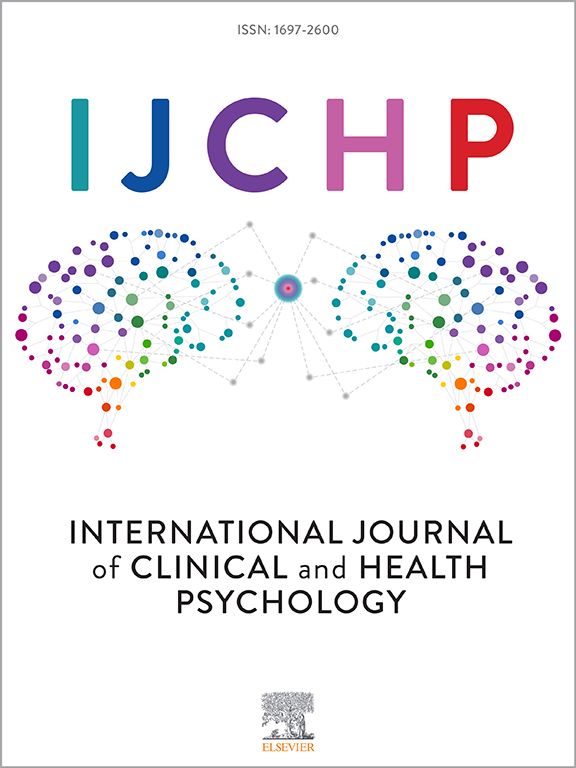A longitudinal study on the change of eating disorder-specific and nonspecific habits during weight rehabilitation in anorexia nervosa
IF 5.3
1区 心理学
Q1 PSYCHOLOGY, CLINICAL
International Journal of Clinical and Health Psychology
Pub Date : 2024-10-01
DOI:10.1016/j.ijchp.2024.100522
引用次数: 0
Abstract
Background
Patients with Anorexia Nervosa (AN) are characterized by rigid behavioral patterns and habit-like routines, especially regarding food intake. It has been hypothesized that habits contribute to the maintenance of AN-related symptoms. Therefore, it is crucial to understand the role of disorder-specific and nonspecific habits during weight-restoration treatment
Method
In this longitudinal study, we examined the frequency of habits using ecological momentary assessment in 44 adolescent patients with AN who were undergoing inpatient nutritional rehabilitation. All patients had two data collection periods: baseline at admission, and follow-up shortly before discharge from treatment. An age-matched healthy control group was included to assess normalization at follow-up
Results
Analyses revealed a significant decrease in food-intake and hygiene-related habit frequency from baseline to follow-up. Furthermore, at follow-up habit frequency of both categories no longer differed between AN and controls. Moreover, the degree of reduction of food intake habits was predictive of weight gain at follow-up
Conclusion
These findings may suggest that habitual behaviors are state factors, mainly present during the acute phase of the disorder, which advances our understanding of the habit hypothesis in AN. Changing such behaviors may be important for weight restoration, highlighting the potential value of interventions targeting habits.
厌食症患者体重康复过程中饮食失调特异性和非特异性习惯变化的纵向研究
背景神经性厌食症(AN)患者的特点是刻板的行为模式和习惯性作息,尤其是在食物摄入方面。据推测,习惯有助于维持厌食症相关症状。在这项纵向研究中,我们采用生态学瞬间评估方法,对 44 名正在接受住院营养康复治疗的青少年厌食症患者的习惯频率进行了调查。所有患者都有两个数据收集期:入院时的基线和出院前不久的随访。结果分析表明,从基线到随访期间,食物摄入和卫生相关习惯的频率显著下降。此外,在随访中,自闭症患者和对照组在这两类习惯的频率上不再存在差异。结论:这些发现可能表明,习惯性行为是一种状态因素,主要存在于自闭症的急性期,这有助于我们理解自闭症患者的习惯假说。改变这些行为可能对体重恢复很重要,这凸显了针对习惯进行干预的潜在价值。
本文章由计算机程序翻译,如有差异,请以英文原文为准。
求助全文
约1分钟内获得全文
求助全文
来源期刊

International Journal of Clinical and Health Psychology
PSYCHOLOGY, CLINICAL-
CiteScore
10.70
自引率
5.70%
发文量
38
审稿时长
33 days
期刊介绍:
The International Journal of Clinical and Health Psychology is dedicated to publishing manuscripts with a strong emphasis on both basic and applied research, encompassing experimental, clinical, and theoretical contributions that advance the fields of Clinical and Health Psychology. With a focus on four core domains—clinical psychology and psychotherapy, psychopathology, health psychology, and clinical neurosciences—the IJCHP seeks to provide a comprehensive platform for scholarly discourse and innovation. The journal accepts Original Articles (empirical studies) and Review Articles. Manuscripts submitted to IJCHP should be original and not previously published or under consideration elsewhere. All signing authors must unanimously agree on the submitted version of the manuscript. By submitting their work, authors agree to transfer their copyrights to the Journal for the duration of the editorial process.
 求助内容:
求助内容: 应助结果提醒方式:
应助结果提醒方式:


